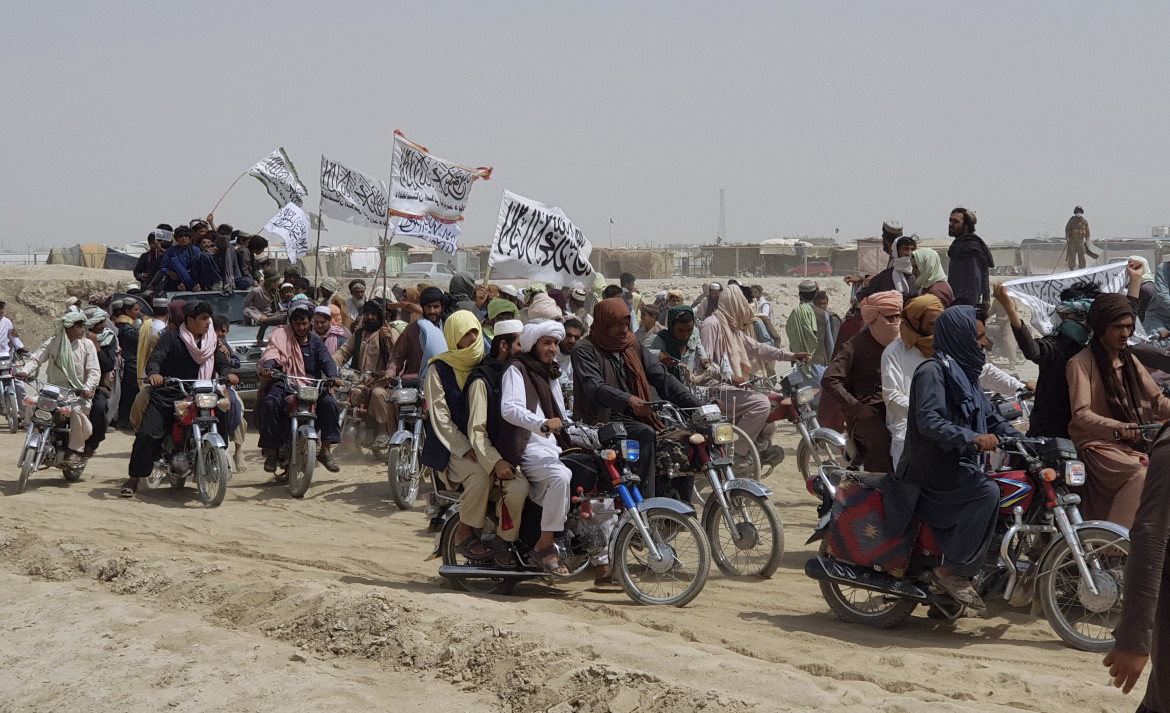Commentary
Americans aren’t the only ones leaving Afghanistan
After 20 years of useless and bloody war, NATO and the US withdraw, leaving the country in disarray. Meanwhile, the Taliban are advancing. Those who can, like my translator, flee.

Goodbye Kabul: everyone is leaving. Even Hashmathullah, my interpreter and travelling companion, has taken an American flight to San Francisco. On his Facebook page, there is a picture of him at the airport with his two children. I have known Hashmat, as he calls himself, since 2001, when he was 18 years old and my passport still had a visa from the Taliban Emirate. In May of that year, I had gone from Pakistan to Afghanistan, accompanied by a rather unencouraging comment from a colleague at our newspaper: “What are you going to do there, nothing ever happens there that’s relevant for us.”
But the visa for Kabul had cost me so much effort and had required such a complicated procedure in Paris to obtain that I would never miss that trip for the world. The last time I had been there, it was still the Afghanistan of the warlords; I had been the guest of Ismail Khan in Herat and of Rashid Dostum in Shebergan, in the province of Mazar el Sharif, where the Uzbek general had his real headquarters.
The Taliban in Pakistan were still organizing, encouraged by the interior minister of then-Prime Minister Benazir Bhutto, whom they would later kill in an attack in 2007. At Dostum’s barracks, there was a pool of blood staining the outer wall: I thought they had slain a sheep, but actually, as they informed me, they had executed one of the general’s men who had been stealing money by crushing him against the wall with a tank. Dostum received me on a sort of throne glittering with pearls and precious stones that I imagined he had bought with the proceeds from the poppy fields that could be seen all around his province.
I met him some time later in exile in Tehran, after the Taliban had driven him out and had killed 11 diplomats of the Islamic Republic in Mazar al Sharif. Khamenei wanted to send a punitive expedition and also urged the Americans to intervene. He was ignored. All those who troubled Tehran were seen with approval by the US and its Gulf allies: at that time, it was the Taliban, then it was the turn of the jihadists and ISIS, who, allied with the Turks and the oil emirs, tried to take out Assad in Syria. Today, Dostum is the deputy of President Ashraf Ghani: who knows if he will remain in his post or I’ll encounter him in another exile if the Taliban will drive him out again.
In May 2001, I met Hashmat for the first time in the lobby of the Intercontinental Hotel, where, like everywhere else in Afghanistan, there was no electricity, water or telephone services. I was sure that since he had offered to escort me, he obviously must have gotten permission from the Taliban.
We took a tour of the hill overlooking the Kabul Polytechnic University, and Hashmat pointed out that it had been built by the Soviets in the shape of a red star. The five-pointed red star has been used since 1917 as a symbol of communism, representing both the five fingers of a worker’s hand and the five continents, connected to the internationalism expressed by the Marxist slogan, “Workers of all countries, unite!” Hashmat knew these things perfectly well, and told me that his uncle spoke Russian; he later became the head of the new police force in the Loghar Valley. He said all that to me in a whisper, of course, because talking about communism under the Taliban—as elsewhere—was frowned upon as a topic.
The only connection we had with the outside world was a small short-wave radio to listen to the BBC, which was also banned by Mullah Omar’s regime. He kept it hidden in his house, to prevent me from getting into trouble, and we listened to it together in the basement, once a day, with a wire coming out of a small window to pick up the signal. Hashmat had concealed the thin rudimentary antenna in a gutter in the ground. In special compartments under the floor, Hashmat’s father and mother kept everything from money to the (highly illegal) TV set and boxes of emergency food. There were also a couple of Kalashnikovs with ammunition, but everyone here had guns anyway.
Then, a few months later, came 9/11. The Taliban regime, with its Al Qaeda allies, fell, but people were still dying nonetheless. I left Jalalabad three days before Maria Grazia Cutuli and Julio Fuentes were killed on the road to Kabul. I found Hashmat again, who helped me survive the troubled times, until better ones came. Not good, but better. Hashmat took me everywhere, and it was in the Loghar valley that we secretly interviewed the former Taliban Minister of Justice, the one who used to cut off heads during the Emirate. He said he was ready to make an agreement with the Americans: that would happen many years later in Doha.
Back then, perhaps a less traumatic way out for the Americans could have been negotiated than the one that is looming today. For Hashmat, too, there’s no other way: he has worked with the Americans and with us, so he is considered a collaborator by the Taliban, like the Algerian harkis after the anti-French war, like the Vietnamese in Saigon. Now he has boarded a plane for San Francisco, leaving his country and his world behind, more to save his family than to save himself.
I won’t find my Afghan friend in Kabul anymore. As time goes by, we become more and more alone in our lives, and all we can do is wish everyone the best of luck.
Originally published at https://ilmanifesto.it/se-dallafghanistan-fugge-anche-hashmathullah/ on 2021-07-16
